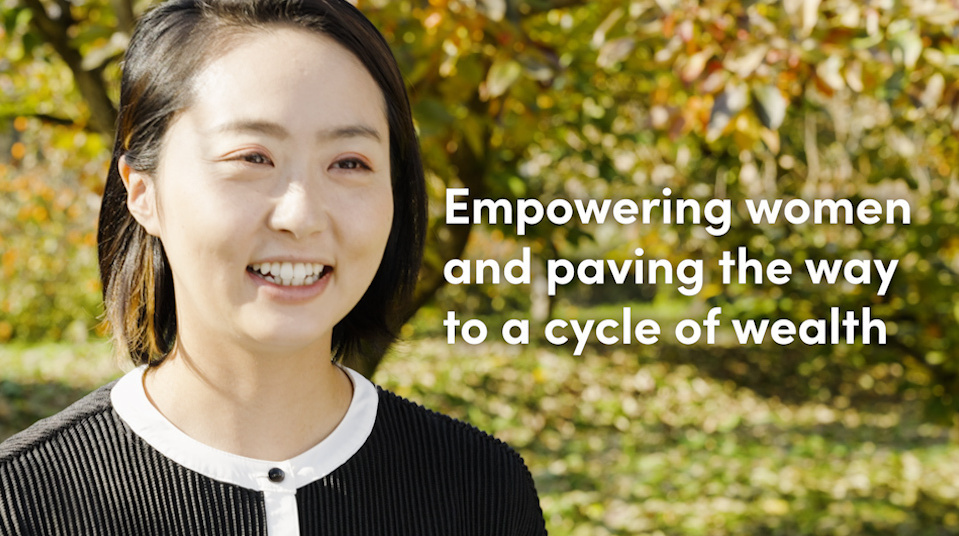Business trips took KOBAYASHI Miai to Fukushima, where she encountered bountiful nature and lifestyles that changed her perceptions and led her to become an entrepreneur. There, she devised a way to distribute so-called substandard fruit, then developed a femtech (female-technology) product using kaki (Asian persimmon) peels that are normally discarded. Dormant local resources came to life through her magic, linking urban and rural areas and pointing to a future in which society shares its wealth.
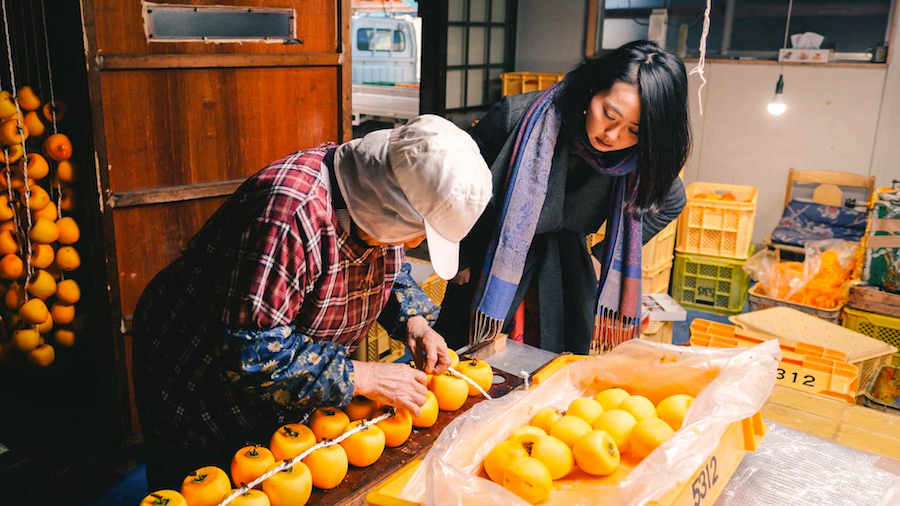
Kaki peels are said to contain substances with excellent deodorizing and moisturizing qualities. Although they are normally discarded during the anpo-gaki production process, Hitobito has used them to develop feminine-care products.
“It was a tingly feeling—the kind you get when you meet someone you want to spend the rest of your life with. In any case, it felt like home.” That is how KOBAYASHI Miai describes her encounter with Kunimi, a small town of around 9,000 in Fukushima Prefecture, where she launched a startup called “Hitobito”—a name that combines the Japanese words for “sun” (hi), “and” (to) and “people” (hito, sequentially voiced as bito). Kunimi Town is a place of fruit growers who welcomed Kobayashi with open arms, leading her to establish a business based on agricultural produce that is normally discarded.
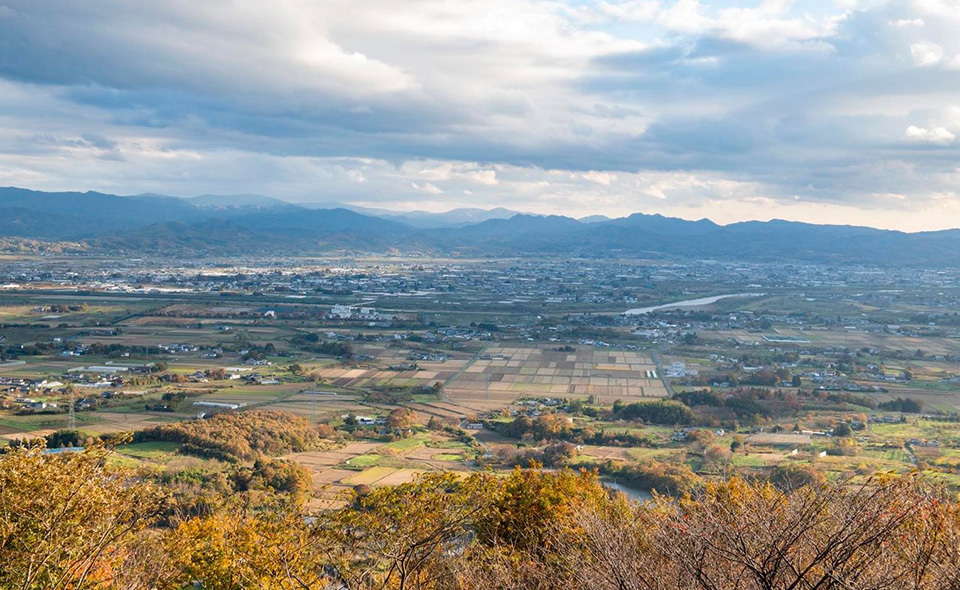
The people of Kunimi say that “work means working for the family” and that “children aren’t supposed to be raised; they grow up naturally.” Such words motivated Kobayashi to rethink her own ideas about work and life.
Kobayashi was once a gung-ho career woman in Tokyo. Harboring a strong desire to serve society, her first job after graduating from college was at the House of Representatives Research Bureau, which undertakes the research and document preparation needed for legislation in the lower house of the Japanese National Diet. In March 2011, toward the end of her first year with the bureau, a giant earthquake (officially termed the Great East Japan Earthquake) struck the northeast of the country. She then took a leave of absence to engage in volunteer rubble-clearing work in post-disaster Tohoku (a hard-hit region in northern Japan), but collapsed from exhaustion and became painfully aware that the only way to be of any use to the region was to “do something [she is] really good at.”
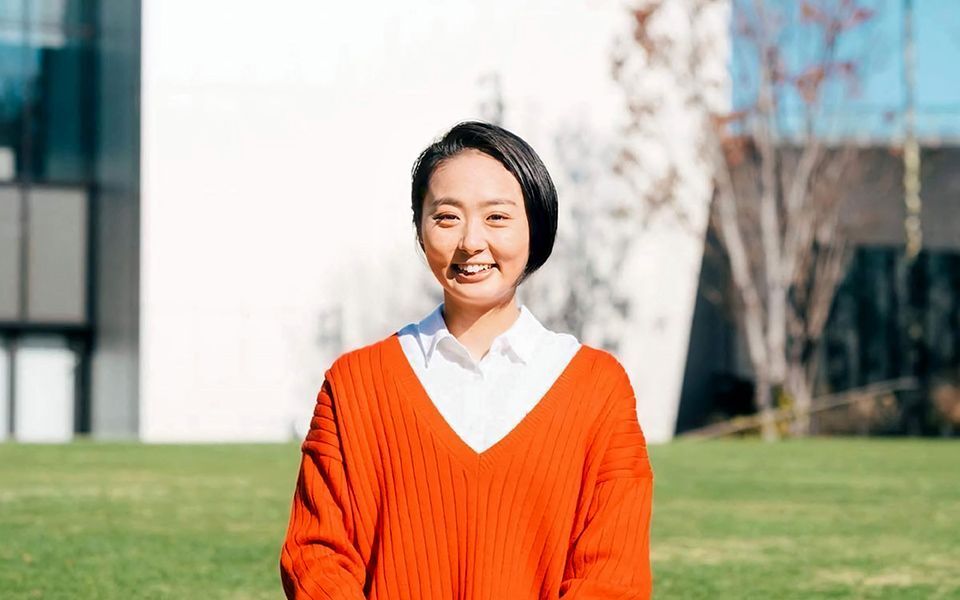
KOBAYASHI Miai now shuttles between her two bases, Tokyo and Fukushima, sharing childcare tasks with her husband. She stays balanced by remaining receptive to the issues surrounding regional resources and city needs, as well as to different sets of values.
Four years later, Kobayashi switched careers and started working for a consulting firm, where she could assist regional businesses on the ground in finding solutions. She actively began volunteering for jobs involving post-disaster reconstruction in the devastated areas of Fukushima Prefecture. Visiting the prefecture on a regular basis, she eventually decided to launch her own business. “I can do more for Fukushima,” she reasoned. “I can do something the region really needs, on my own initiative.” She was confident in the skills that she had gained through her work with the government and the consulting firm.
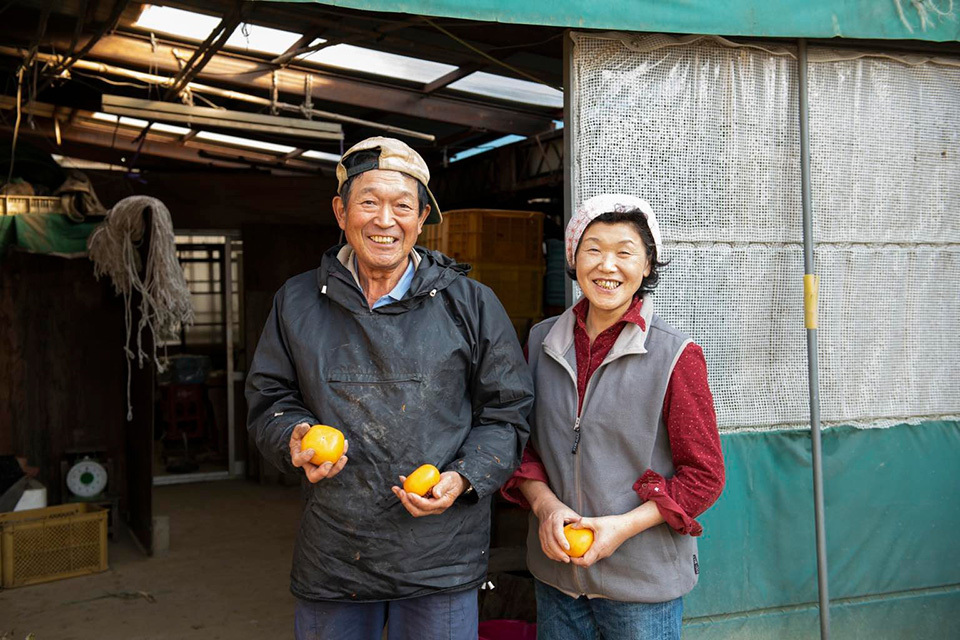
A husband-and-wife team in Kunimi producing both peaches and anpo-gaki provide the kaki peels for Hitobito products. Warm-hearted and conscientious, they are vital partners for Kobayashi and Hitobito.
The place that she chose was Kunimi, a town where she felt at home. She spoke with the farmers there to learn about their problems, and began by focusing on the distribution of peaches, a major product of the region. Ordinary distributors do not accept substandard produce: that is, fruit of the wrong size or shape, or with slightly blemished skin. Kobayashi bought such peaches directly from farmers, she then devised a system that made the fruit available to city consumers at a reasonable price, together with messages from the producers and other pertinent information. Her next focus was on “anpo-gaki” (luscious semi-dried persimmons), another well-known product of Kunimi. The fruit is peeled before drying, with the peels normally being thrown away, but Kobayashi learned that these peels are endowed with deodorant and antiseptic qualities. She then spent three years developing kaki-based skin-care products for women’s intimate areas, and successfully brought them to the market in January 2020. It was an idea that came to her because she herself had been prone to skin problems and had irregular periods whenever she felt emotionally or physically stressed by her formerly irregular lifestyle.
The Ministry of Economy, Trade and Industry (METI) recognized Hitobito two years in a row for a subsidy initiative known as the Demonstration Project for Femtech and Similar Support Services. This autumn, Hitobito is set to launch an “active-learning” demonstration project aimed at business enterprises, with the goal of removing unconscious biases regarding women’s minds and bodies. “I think femtech will be the trump card for achieving diversity and inclusion,” asserts Kobayashi. “New femtech products will give people the chance to learn together about women’s health issues, and we plan to focus on awareness-building, letting both men and women think more about their own health.”
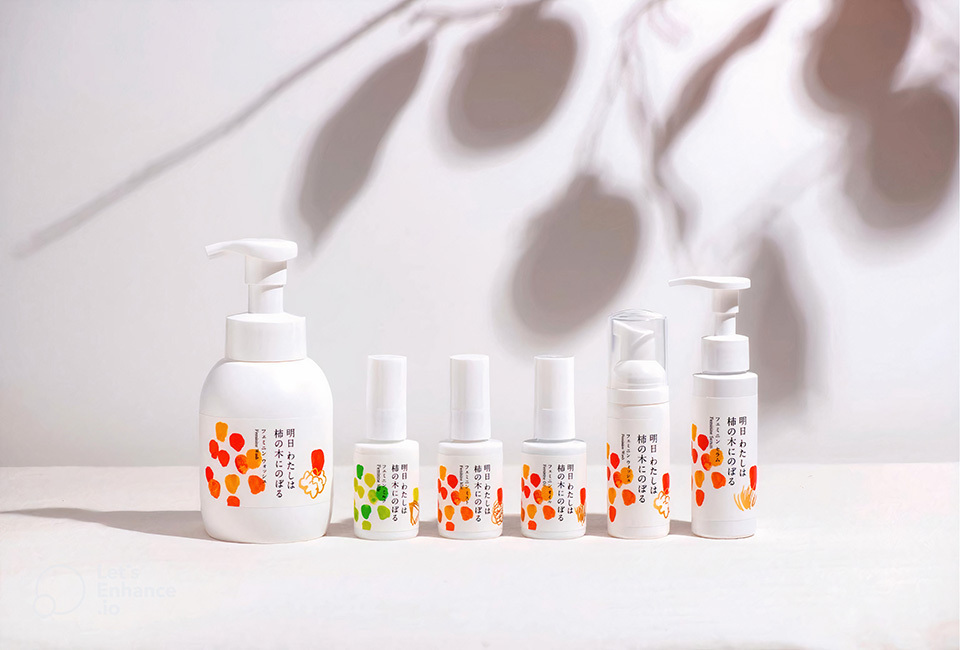
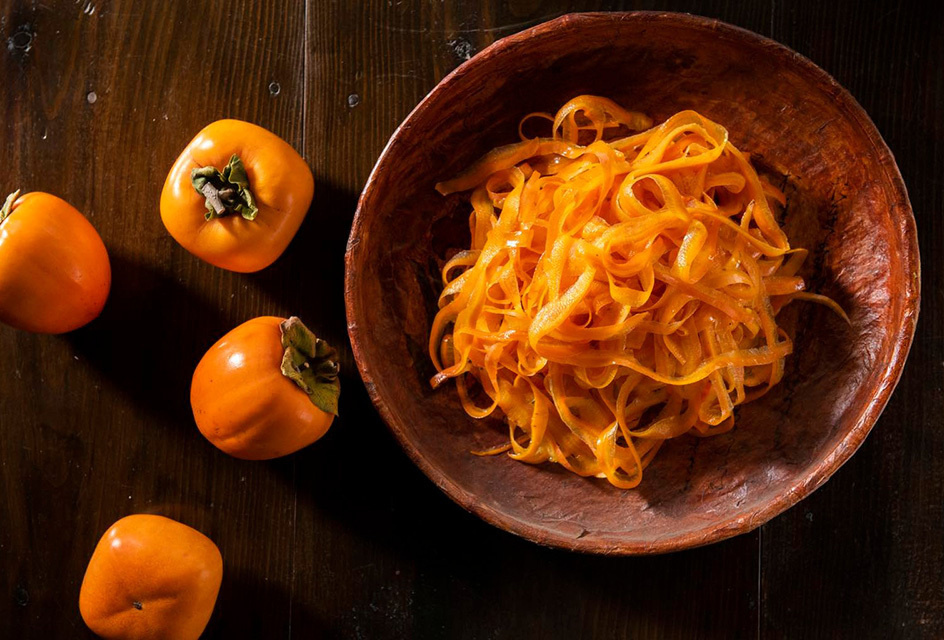
The name of the feminine-care products Kobayashi came up with is “Tomorrow I will climb a kaki tree.” It exhorts women to live their lives at their own pace, choosing their own way.
“We want to build an environment in which all women can cherish the balance of their own minds and bodies and make their own choices,” she adds. Kobayashi believed in her own potential and cleared a path for herself. Her energy is as bright as the sun and lights the way toward a shining future for women in Fukushima and in Japan as a whole.


